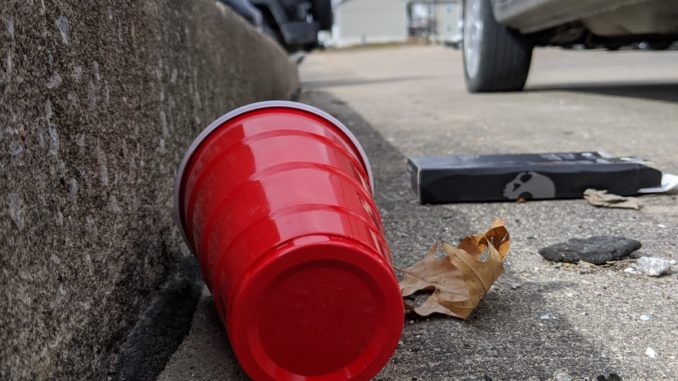
A new pilot program went into effect for the fall semester that will allow students who are 21 or over to drink alcohol at certain locations on campus.
The initiative allows students who are of legal drinking age to store and consume alcohol at West Campus Suites, Campbell Apartments and Randolph Apartments. The Residence Life Handbook for the fall semester contains 17 points that further explain the limitations of drinking at these locations.
Every student in a room with alcohol must be 21 or older, otherwise it is prohibited. Open containers are not allowed in any public setting, but are allowed in the student’s private room or apartment. There is a maximum to how much alcohol one student can have in their room.
“A student of legal drinking age may not possess more than the total fluid ounce equivalent of one case of beer (30 count max), or two liters of wine, or one liter of distilled spirits,” the handbook states.
Additional regulations can be viewed online at Truman Residence Life page.
This program took several years to finalize and put into effect. Janna Stoskopf, vice president for student affairs, said she began working with a committee of students in the fall semester of 2019 to do a thorough review of the campus alcohol policies. This review came as a result of Student Government passing a resolution in April 2019 requesting a review of the policies.
The team made a campus-wide survey about alcohol policies on campus to get feedback directly from the students.
“Survey results indicated that strict alcohol rules and enforcement was in the top three to five reasons that students chose to move off campus,” Stoskopf said.
The committee then recommended that the Board of Governors give authority to the University President to institute the pilot program. West Campus and the Apartments were chosen for the program based on several factors analyzed during the policy review.
“These facilities were selected as part of the pilot because students aged 21 and over are more drawn to the type of spaces offered in these areas,” Stoskopf said.
Stoskopf said she is unsure of what the future could look like after this program. She said the outcomes will be determined by how students use their judgement regarding alcohol and how students choose to engage in low-risk behavior. If this year is a success, Stoskopf anticipates that the policy will be continued.
Jamie Van Boxel, director of Residence Life, said all the student advisors on campus received training in regard to the new policy. The Residence Life Handbook for the fall semester of 2020 contains a new section titled “Response by University Staff to situations involving Alcohol: Guiding Principles”. This section is what all the SA’s received training on before the semester started.
Van Boxel said all the student advisors received this training so they know how to interact with students who have consumed alcohol and how to be safe about it.
“Now when our staff is talking about alcohol use everywhere on campus, the framework isn’t about abstaining from alcohol use,” Van Boxel said. “The framework now becomes how do you drink responsibly and do so in a way where you’re putting your health and wellness first.”
Van Boxel said he thinks it is hard to guess how the pilot program will be received by students. To determine whether it is being received well or not, a resident life survey will be sent out later in the semester. This annual survey gauges how satisfied students are with the on-campus living experience Van Boxel explained. The survey this year will include questions about the alcohol pilot program, which will provide more insight as to how students feel about it.
